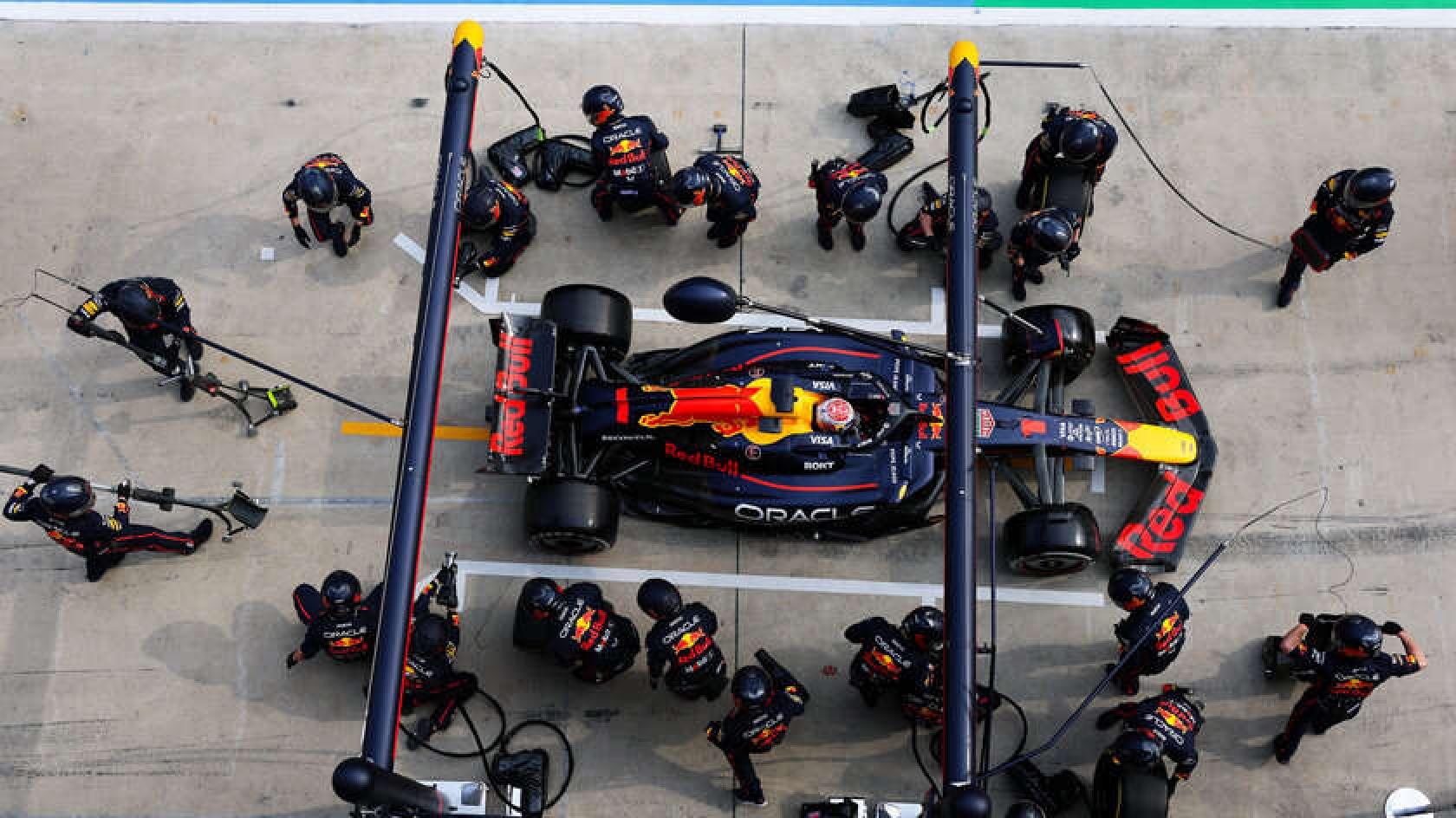The Formula 1 world is still buzzing after the Japanese Grand Prix on April 6, 2025, where Max Verstappen delivered a spectacular performance that allowed him to take pole position and win the race. His performance attracted worldwide attention, especially after a shocking comment from a Spanish commentator for Marca, who affectionately nicknamed Verstappen “Savage Beast” due to his relentless driving style. During the post-race press conference, Verstappen learned of the nickname and asked the assembled journalists an unexpected question that left the room silent: “If I’m a beast, what does that do to my opponents?” The question, imbued with Verstappen’s trademark wit, left the commentator momentarily speechless, before laughing and admitting that Verstappen’s dominance is unique.

Verstappen’s performance in Japan was a masterpiece. Despite expectations that McLaren would dominate, he surprised everyone with a masterful qualifying lap, taking his first pole of the season. On Sunday, he claimed a flawless victory, his first of 2025, and proved once again why he is a four-time world champion. The international press was enthusiastic. Spanish newspaper Marca praised his “bestial” power, while Belgian newspaper Het Laatste Nieuws compared him to Ayrton Senna, suggesting that Verstappen is racing in “sublime form.” Even the often-critical British press hailed his qualifying lap as “a moment of genius.” The nickname “Savage Beast” perfectly summed up his fearless and unstoppable approach.

Verstappen’s question came during a relaxed moment in the press conference, when a journalist asked him about his nickname. His quick and sharp retort—“What does that mean for my rivals?”—conveyed the Dutchman’s typical mix of humor and confidence. The moment went viral on social media, where fans praised his wit. “Max is not only a beast on track, but also with words,” wrote one fan on X. Others interpreted it as a subtle warning to rivals like Lando Norris and Oscar Piastri, who have been putting pressure on the competition this season. The commentator, visibly bewildered, tried to salvage the moment with praise for Verstappen’s unparalleled talent, but the silence spoke volumes.
The anecdote reflects Verstappen’s current position in Formula 1. Despite a difficult season, both dominated by McLaren and strategic errors by Red Bull, he remains in a class of his own. In Japan, he pushed the RB21 to the limit, even when the McLaren cars were theoretically superior. Bild called his victory “a great mystery,” noting how Verstappen repelled an aggressive attempt by Norris to overtake him on the pit exit. “An elbow within the regulations,” the newspaper wrote, while questioning why McLaren didn’t deploy Piastri to challenge Verstappen. Sky Sports commentator David Croft praised his “sensational” performance, despite the strategic choice of hard tires that put him under pressure.

However, Verstappen’s reputation as a “wild man” is not without controversy. His aggressive driving style, as seen in his recent clash with George Russell in Spain, has earned him 11 penalty points on his superlicense, just one point shy of a suspension. Critics such as Jolyon Palmer have criticized his tendency to force rivals off the track, while others, like Martin Brundle, admire his tremendous speed and impeccable driving. Verstappen himself remains calm. After Japan, he spoke of a “special feeling,” but emphasized that he remains grounded and focused on the next race.
With the Canadian Grand Prix just around the corner, where Dutch commissioner Natalie Corsmit will make her debut, fans are eager to see how Verstappen’s season unfolds. His performance in Japan not only underscores his confidence, but also his ability to command attention, both on and off the track. As Formula 1 gears up for a thrilling battle, with McLaren and Ferrari hot on his heels, Verstappen remains the “Wild Beast” who continues to surprise and dominate the sport. His combination of talent, humor, and courage makes him a phenomenon that even his critics can’t ignore.






